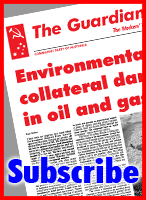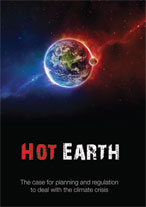Editorial
Assange and journalism
Shunned by the government of his own country, Australia, deprived of asylum by Ecuador and wanted by Sweden and the US for dubious crimes: In these cynical times when many journalists are content to serve as mouthpieces for the powers-that-be, Julian Assange was busy holding the US superpower’s feet to the fire over issues related to war crimes, torture and high-level corruption.
That relentless pursuit of truth regardless of the personal risks involved, goes far at explaining why the 47-year-old journalist and computer programmer is the subject of so much state-sponsored wrath and harassment today.
Ecuador’s attorney general will deliver Julian Assange’s documents, computers, cell phones, hard drives and more to US authorities. Indeed, the sheer spinelessness of the Ecuadorian Embassy revoking its humanitarian asylum, thereby allowing British authorities to arrest Assange will be remembered as one of the darkest days in the annals of journalism. And the situation only promises to get worse.
What this demonstrates is that the Western powers are determined to teach a harsh lesson to anyone else who would consider practising good old-fashioned journalism, not to mention ethics, which is exactly what Assange and WikiLeaks had been doing. But the heroism and bravery did not magically begin and end with Julian Assange.
In fact, the real heroes of this unfolding tragedy are the many whistle blowers – Chelsea Manning, Edward Snowden, and William Binney, to name just a few – who took great personal risk by turning over millions of classified documents in an effort to prove some violation of the law had occurred or was still occurring.
No legal proceeding whatsoever. Just hand over someone else’s personal property. But who cares about that if the United States is involved? Good to see the civil liberties crowd so vigorously involved in this.
As compensation for their personal sacrifice, which almost always results in hefty jail time, the whistle blowers’ only request was that the media reveal the information so that civil society may respond accordingly. But the mainstream media seems to have lost its appetite for confrontation with the establishment. Indeed, how could it not when the establishment itself owns the media lock, stock and barrel? Today, there is a particular type of journalist that the mainstream media prefers to do business with; people who have a large soft spot in their hearts and brains for unprovoked blood and violence.
The UK contributed its share to smearing and silencing Assange, cutting off his internet in the Ecuadorian Embassy after he tweeted that Britain was engaged in a “propaganda war” against Russia. The Swedish case against Julian Assange stinks and has always stunk: One of the women involved said the police “railroaded” her. As in Washington, the aim is to “get” Assange regardless of facts: for the crime of embarrassing corrupt power.
In this context, the founding of WikiLeaks in 2006 could be seen as a watershed moment in modern media history, the year when Assange helped to revolutionise the work of journalists worldwide in their efforts to hold public officials responsible for their actions.
However, it is important to remember that the birth of WikiLeaks did not occur in a vacuum. Around the same time, social media platforms like Facebook began to appear on the scene as cutting-edge generators of news, opinion, and information, as did alternative international news sources, which provide news consumers with additional sources of vital information.
Although logic and common sense tells us that more information is naturally a boon, as it allows people to make better-informed decisions, not everyone is thrilled about the new media landscape, as the case of Julian Assange attests.
Today, any open-minded, idealistic individual who hopes to provide a better informed, less concentrated informational space, is viewed as the enemy of a creeping technocracy that aims to bring all news and information back under its dominion. This is about the threat to the domination of information – at the forefront of which is Rupert Murdoch’s global misinformation machine.
And with the available technology now at its disposal, including the manipulation of algorithms to control what the public is able to view, the journalistic work of people like Julian Assange is more critical than ever.













